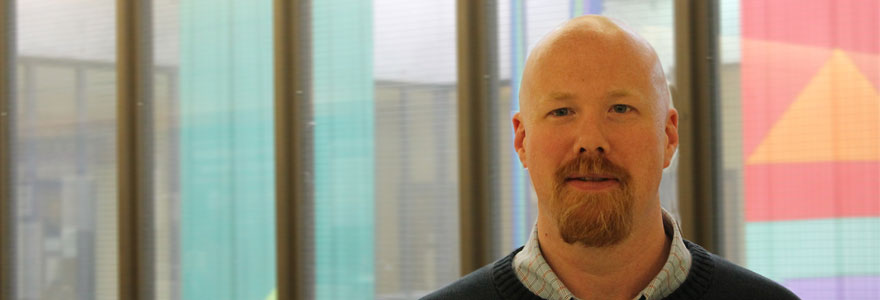News and Updates
Contact
Faculty of Social Science
Social Science Centre
Room 9438
Western University
T. 519-661-2053
F. 519-661-3868
E. social-science@uwo.ca
Bringing Big Data to Political Science
March 20, 2017
Dave Armstrong is working to bring big data to political science.
Armstrong has joined Western University’s Department of Political Science as an Associate Professor. He completed his PhD at the University of Maryland, and was a faculty member at the University of Wisconsin-Milwaukee for more than seven years.
Armstrong’s research focuses on methodology, statistics, and quantitative analysis in political science. Looking at analytical methods and tools used in other disciplines, Armstrong develops new tools to help people understand politics better, with an aim to give political scientists better methods to conduct their research.
“Political science has evolved over the past twenty years, pushing people in direction of developing rigorous and well-thought out models from which a set of precisely-specified hypotheses can be derived and tested,” said Armstrong.
But the rise of big data has changed how people approach many problems, including political science.
New models and the focus on big data, says Armstrong “make doing these thing unnecessary; theory development becomes unnecessary, and it changes enormously the nature of inquiry.”
“The focus on new data has switched from hypothesis testing to prediction – this is a fundamental shift in focus of analyses, and it is not, necessarily, all to the good,” said Armstrong.
He is interested in building a bridge between big data predictive modeling and the conventional practice of hypothesis testing, and his upcoming research projects will increase understanding of how tools for big data can be used in political science research.
“We are trying to merge these two approaches,” said Armstrong. “How can we harness the power of predictive modeling, but retain our ability to make statements about the effects of concepts on political phenomena?”
While he pulls tools from other disciplines, Armstrong says his work can extend beyond political science.
“Models are only as good as the measures that animate them,” he said. “If we can improve the way we measure variables and their effects, we can improve state of knowledge across all disciplines.”
In coming to Western, Armstrong enhances the quantitative research and teaching profile of the Department of Political Science. Armstrong says Canadian departments across the social sciences are starting to invest in quantitative training and research. Western’s investment across the social sciences puts it among the top institutions for quantitative social science in the country.
“It (Western) seems like an exciting place to be,” said Armstrong. “Across Social Science, they seem to be bringing together interesting people doing good work, and I’m excited to be part of that.”

